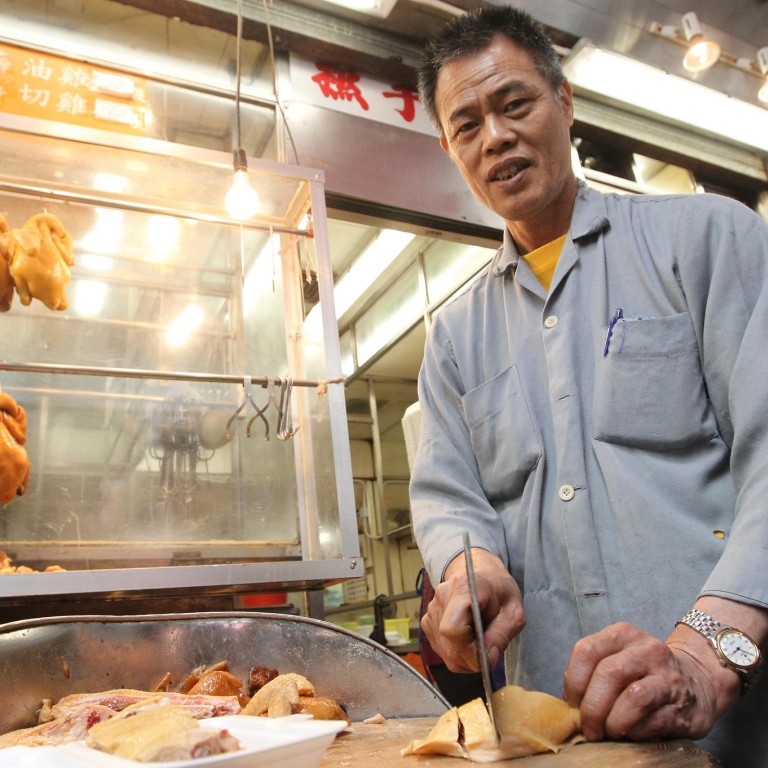
A recipe for helping others
A restaurant owner has made it his goal to help the homeless by providing free meals. Now, the kindness of strangers is keeping his good work going
Three dirty-faced men dressed in grimy rags shuffled into the Pei Ho Barbecue Restaurant in Sham Shui Po. One was obviously drunk as they sat down at a large round table.
But instead of kicking them out, owner Chan Cheuk-ming called each by name and greeted them with a smile. "What'd you like? Maybe rice?"
Soon, steaming plates of rice with meat and soft steamed buns were on the table. The three men ate then shuffled out the door.
Chan had let them eat free - and it wasn't the first time he had treated someone to a hot meal.
"I remember what being poor felt like," he said, smiling a little.
His restaurant, with 21 staff, has been giving free meals to the homeless every Saturday for close to 18 months, while serving affordable meals to poor locals. He accepts meal-box sponsors from the public, and will help organise food giveaways with anyone who is interested. Through his business, dubbed the "restaurant with a heart", Chan has garnered global support as word of his kind-hearted deeds spread through social media then newspapers and magazines.
A women's organisation in Italy gave money to his cause. A woman from Australia has also been sending money to sponsor meal boxes for the homeless.
Chan started work at the restaurant in 1983 and took it over with a partner when the original owner retired in 1997. In 2001, they started selling HK$15 "cheap meal boxes" of rice with three dishes, as the city's economy was bad and unemployment among the working class was serious. "I saw a lot of people suffering, so we just wanted to make sure they had enough to eat," he said.
In 2008, Chan began collaborating with the Society for Community Organisation to provide meals for the poor. Each meal box was worth HK$22 and sold for HK$5. A private company paid HK$15 and the restaurant covered the remaining HK$2. The scheme ran until February.
The introduction of the statutory minimum wage in 2011 was a huge hurdle for the business, Chan said. "We were paying our employees HK$24 an hour, and to have it suddenly jump to HK$28 was very hard for us," said Chan. It added HK$20,000 a month to the cafe's already tight budget. Chan and his partner decided to pay HK$5,000 a month each from their own pockets to keep their prices low. "We didn't want to follow inflation," he said.
When Chan thought the eatery could hold back no longer, a miracle happened. After reading about Chan in a magazine, a group of about 20 friends stepped in. The middle-class Hongkongers, frustrated at the government handing out HK$6,000 to everyone instead of using it to help the poor, vowed to spend their own handouts on the needy.
They bought meal boxes from Chan and distributed them to the local poor. The group grew, and the 80 monthly meal boxes soon doubled and then tripled. Today they buy 400 boxes a month.
As word spread through social media, a network of kind strangers was set up, and random individual acts of kindness spread through the city, with many taking the idea of feeding the poor, while supporting a local eatery or store to their own districts. Many supporters also started coming to eat at Chan's place, buying sponsored meal boxes, which not only fed those in need, but also helped to stabilise Chan's income. "I really learned what [the Chinese idiom] 'if I'm for people, people will be for me' means," he said.
With his finances stable, Chan raised his staff's hourly wages to HK$30, ahead of the new minimum wage. "In the beginning, of course I wanted to earn as much as possible," said Chan. "But I understand the feeling of poverty. I've tasted it. And after getting such warm support, I also want to help those in need. It's not about charity or giving sympathy. It's about sharing resources, for each person to get what they need."
